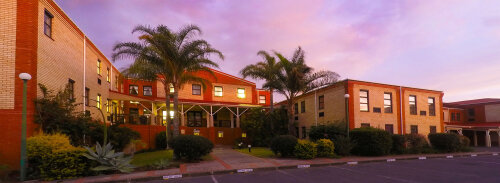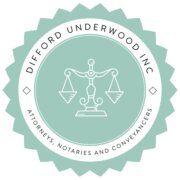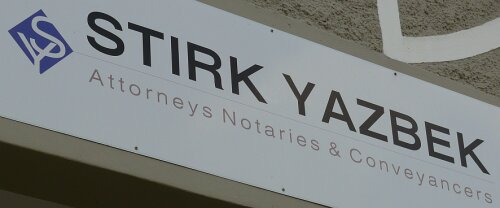Best ADR Mediation & Arbitration Lawyers in East London
Share your needs with us, get contacted by law firms.
Free. Takes 2 min.
List of the best lawyers in East London, South Africa
South Africa ADR Mediation & Arbitration Legal Articles
Browse our 1 legal article about ADR Mediation & Arbitration in South Africa written by expert lawyers.
- Resolving Cross-Border Commercial Disputes in South Africa
- Mandatory Consideration: Uniform Rule 41A requires all litigants in the South African High Court to consider mediation before proceeding to trial, making it a standard step in cross-border disputes. Enforceability: Settlements reached through mediation can be made an order of the court, giving them the same legal weight and enforcement... Read more →
About ADR Mediation & Arbitration Law in East London, South Africa
Alternative Dispute Resolution (ADR), which includes mediation and arbitration, is an increasingly preferred way of resolving legal disputes outside the formal court system in East London, South Africa. ADR methods offer parties the opportunity to resolve conflicts more efficiently, privately, and often more amicably than traditional litigation. Mediation focuses on facilitating communication between the parties to help them reach a mutual agreement, while arbitration involves a neutral third party who listens to the case and makes a binding decision. These processes are governed by national legislation but are commonly used locally in a range of matters, including commercial, labour, family, and property disputes.
Why You May Need a Lawyer
While ADR processes are generally more informal than court proceedings, legal advice and representation can be essential. People in East London may require a lawyer in ADR mediation and arbitration for the following reasons:
- To understand their rights and obligations under local and national ADR laws
- To draft or review settlement agreements and arbitration clauses
- To navigate complex disputes, especially where significant financial or personal interests are at stake
- To ensure fairness in the mediation or arbitration process
- To represent their interests during negotiations or hearings
- To enforce or challenge decisions and awards resulting from ADR processes
- To help choose qualified mediators or arbitrators
- To manage disputes involving cross-border or culturally sensitive issues
Local Laws Overview
In East London, as part of South Africa, ADR practices are largely governed by the Arbitration Act 42 of 1965 and, for labour disputes, the Labour Relations Act 66 of 1995. Local courts strongly encourage parties to consider ADR before entering into litigation, particularly for civil and commercial disputes. Mediation is often voluntary, and any agreement reached is legally binding if reduced to writing and signed by both parties. Arbitration decisions (awards) are generally final and binding, with limited grounds for appeal or review. Certain matters, such as criminal cases or specific family law issues (like divorce settlements involving children), may not be eligible for ADR.
Frequently Asked Questions
What is the difference between mediation and arbitration?
Mediation involves a neutral facilitator who helps parties negotiate a settlement without making a decision. Arbitration involves an independent arbitrator who listens to both sides and makes a legally binding decision.
When is ADR suitable in East London?
ADR is suitable for many civil, commercial, labour, and even certain family disputes. It is less appropriate for criminal cases or issues involving public interest.
Is an ADR settlement legally binding?
Yes, if the agreement is in writing and signed by both parties, it becomes legally binding and can be enforced by the courts.
Do I need a lawyer for mediation or arbitration?
While not a legal requirement, having a lawyer is highly recommended, especially for complex disputes, to ensure your rights are protected and to draft or review agreements.
Can arbitration decisions be appealed?
Arbitration awards are generally final and binding, with limited grounds for review or appeal, such as when there was misconduct or bias by the arbitrator.
How long does ADR take compared to traditional litigation?
ADR is typically much faster than court proceedings. Mediation could take a few hours to several days, while arbitration might take a few weeks to a few months, depending on the case's complexity.
What types of disputes are commonly resolved with ADR in East London?
Common disputes include workplace disagreements, contractual issues, property disputes, business matters, and some family law issues.
How much does ADR cost?
Costs vary depending on the complexity of the matter and the professionals involved, but ADR is often more affordable than lengthy court battles due to faster resolution and fewer procedural requirements.
Who selects the mediator or arbitrator?
Both parties usually agree on the appointment of a mediator or arbitrator. If there is no agreement, an appointing authority, such as an ADR centre, may assist in the selection.
What happens if one party does not comply with an ADR agreement or award?
If a party fails to honour a signed mediation agreement or an arbitration award, the other party can approach the local courts to enforce it.
Additional Resources
If you are seeking information or support related to ADR, consider the following resources:
- East London Local Magistrates’ Courts - Provide guidance on the legal process and recognition of ADR agreements
- Legal Aid South Africa - Offers legal advice and support for those who qualify
- South African Association of Mediators - Maintains a directory of accredited mediators
- Commission for Conciliation, Mediation and Arbitration (CCMA) - Specialises in labour-related mediation and arbitration services
- Eastern Cape Society of Advocates and local law societies - Can help you find a qualified legal practitioner with ADR experience
Next Steps
If you believe ADR mediation or arbitration may be right for your dispute in East London, you should:
- Consider the nature of your dispute and whether ADR is appropriate
- Contact a local lawyer or legal aid centre for an initial consultation
- Discuss the possibility of ADR with the other party where possible
- Decide whether you need legal representation during negotiations or hearings
- Gather all relevant documents and information related to your dispute
- Consider consulting with local ADR bodies to identify qualified mediators or arbitrators
- Be prepared to engage in good faith in the hope of achieving a fair and timely resolution
Seeking expert legal advice and understanding your rights are crucial steps towards a successful outcome in any ADR process in East London, South Africa.
Lawzana helps you find the best lawyers and law firms in East London through a curated and pre-screened list of qualified legal professionals. Our platform offers rankings and detailed profiles of attorneys and law firms, allowing you to compare based on practice areas, including ADR Mediation & Arbitration , experience, and client feedback.
Each profile includes a description of the firm's areas of practice, client reviews, team members and partners, year of establishment, spoken languages, office locations, contact information, social media presence, and any published articles or resources. Most firms on our platform speak English and are experienced in both local and international legal matters.
Get a quote from top-rated law firms in East London, South Africa — quickly, securely, and without unnecessary hassle.
Disclaimer:
The information provided on this page is for general informational purposes only and does not constitute legal advice. While we strive to ensure the accuracy and relevance of the content, legal information may change over time, and interpretations of the law can vary. You should always consult with a qualified legal professional for advice specific to your situation.
We disclaim all liability for actions taken or not taken based on the content of this page. If you believe any information is incorrect or outdated, please contact us, and we will review and update it where appropriate.













